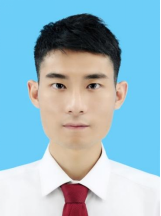
李顺,男,特聘教授,重庆大学与美国南加州大学联合培养博士,系四川省“天府峨眉计划”入选者;四川省“天府峨眉计划”创新团队核心成员;“成渝双城经济圈”科创联盟项目评估咨询专家。兼任中国医药生物技术学会委员会委员、Current Drug Targets等多种学术期刊编委等。目前主持国家自然科学基金项目1项(82002909),省部级项目2项(CQKLBST-2021-002;2022NSFSC1318)。截至目前,申请人在国际知名学术期刊PNAS、Nature Communications、Autophagy等发表SCI论文20余篇,其中IF>10的5篇,相关成果已获批发明专利(ZL 201510514331.1;已授权)。曾多次受邀在国际或国内学术研讨会上作大会或分会报告。主要从事细胞自噬与疾病的发生发展关系以及细胞信号转导的分子生物学机制研究。
主持和参与科研项目情况:
(1)国家自然科学基金委员会,82002909,自噬-溶酶体的转录调控在黑色素瘤发生发展和耐药性中的功能研究,2021-01至2023-12,24 万元,在研,主持
(2)四川省科学技术厅,2022NSFSC1318,力信号介导TRPV4-p38/JNK-ZKSCAN3通路靶向TGF-β自噬降解促进椎 间盘退变的机制研究,2022-01至2023-12,10万元,在研,主持
(3)学院, 高层次人才培育项目, KYPY-20-01, TFEB 的磷酸化调控在黑色素瘤耐药性产生过程的作 用及分子机制研究, 2020-01 至 2025-12, 60万元, 在研, 主持
(4)“生物流变科学与技术”教育部重点实验室开放基金;力信号介导TRPV4-p38/JNK-ZKSCAN3 通路靶向 TGF-β自噬降解促进椎间盘退变的机制研究;CQKLBST-2021-002;5万元;2022-01-01至2023-12-31;在研,主持
(5)学院-成都市第七人民医院临床科学研究基金创新团队项目;细胞自噬在肺鳞癌恶性转化、增殖和耐药性中的作用及分子机制研究;2022LHTD-04;50万元;2023-01-01至2025-12-31;在研,主持
代表性研究成果和学术奖励情况:
一、代表性研究成果
1.Shun Li, Ying Song, Christine Quach, Hongrui Guo, Gyu-Beom Jang, Hadi Maazi, Shihui Zhao, Nathaniel A Sands, Qingsong Liu, Gino K In, David Peng, Weiming Yuan, Keigo Machida, Min Yu, Omid Akbari, Ashley Hagiya, Yongfei Yang, Vasu Punj, Liling Tang*, and Chengyu Liang*, Transcriptional regulation of autophagy-lysosomal function in BRAF-driven melanoma progression and chemoresistance.Nature communications, 2019. 10(1): p. 1693.
2.Shun Li, Ying Song, Christine Quach, Dali Nemecio, and Chengyu Liang*, Revisiting the role of autophagy in melanoma.Autophagy, 2019. 15(10): p. 1843-1844.
3.Shun Li, Gyu-Beom Jang, Christine Quach, and Chengyu Liang*, Darkening with UVRAG.Autophagy, 2019. 15(2): p. 366-367.
4.Shun Li, Lunkun Ma, Mengting Ou, Jianguo Feng, Yi Liao, Guixue Wang, and Liling Tang*, A novel inducible lentiviral system for multi-gene expression with human HSP70 promoter and tetracycline-induced promoter.Applied microbiology and biotechnology, 2017. 101(9): p. 3689-3702.
5.Shun Li, Xiaobo Li, Haowei Liang, Kuike Yu, Jingbo Zhai, Mengzhou Xue, Zhuojing Luo, Chunfu Zheng, and Hao Zhang, SARS-CoV-2 ORF7a blocked autophagy flux by intervening in the fusion between autophagosome and lysosome to promote viral infection and pathogenesis. J Med Virol, 2023. 95(11): p. e29200.
6.Shun Li, Hao Zhang, Weichen Li, Jingbo Zhai, Xiaobo Li, and Chunfu Zheng, The role of SARS-CoV-2 ORF7a in autophagy flux disruption: implications for viral infection and pathogenesis. Autophagy, 2024: p. 1-3.
7.Shun Li, Mengting Ou, Guixue Wang, and Liling Tang*, Application of conditionally replicating adenoviruses in tumor early diagnosis technology, gene-radiation therapy and chemotherapy.Applied microbiology and biotechnology, 2016. 100(19): p. 8325-35.
8. YuanyuanLiang,ShunLi*, and LilingTang*, MicroRNA 320, an Anti-Oncogene Target miRNA for Cancer Therapy.Biomedicines, 2021. 9(6).(通讯作者)
9. Piaoyang Liu,Shun Li*, and Liling Tang*, Nerve Growth Factor: A Potential Therapeutic Target for Lung Diseases.Int J Mol Sci, 2021. 22(17).(通讯作者)
10. Lunkun Ma, Huifang Sun, Xichao Xu, Ying Chen, Lu Zhang,Shun Li*, and Liling Tang*, Tumor suppressor LHPP suppresses cell proliferation and epithelial-mesenchymal transition in hepatocellular carcinoma cell lines.J Physiol Biochem, 2022.(通讯作者)
11. Xichao Xu, Yi Zhang, Xing Wang,Shun Li*, and Liling Tang*, Substrate Stiffness Drives Epithelial to Mesenchymal Transition and Proliferation through the NEAT1-Wnt/β-Catenin Pathway in Liver Cancer.Int J Mol Sci, 2021. 22(21).(通讯作者)
二、获奖情况
1.2022年获得四川省“天府峨眉计划”青年人才(省部级)
2.2020年学院优秀教师
3.2021年学院优秀科技工作者
4.2022年学院杰出人才奖
5.2023年中共学院优秀共产党员
主要学术兼职:
1. 中国医药生物技术协会3D打印技术分会委员会委员
2. 四川省免疫学会肿瘤免疫专委会青年委员会委员
3. 四川省科技青年联合会理事
4. "成渝双城经济圈"科技创新联盟评估专家
主要研究方向:
(1)肿瘤发生发展机制研究;(2)肿瘤免疫治疗和药物研发;(3)病毒免疫逃逸分子机制。